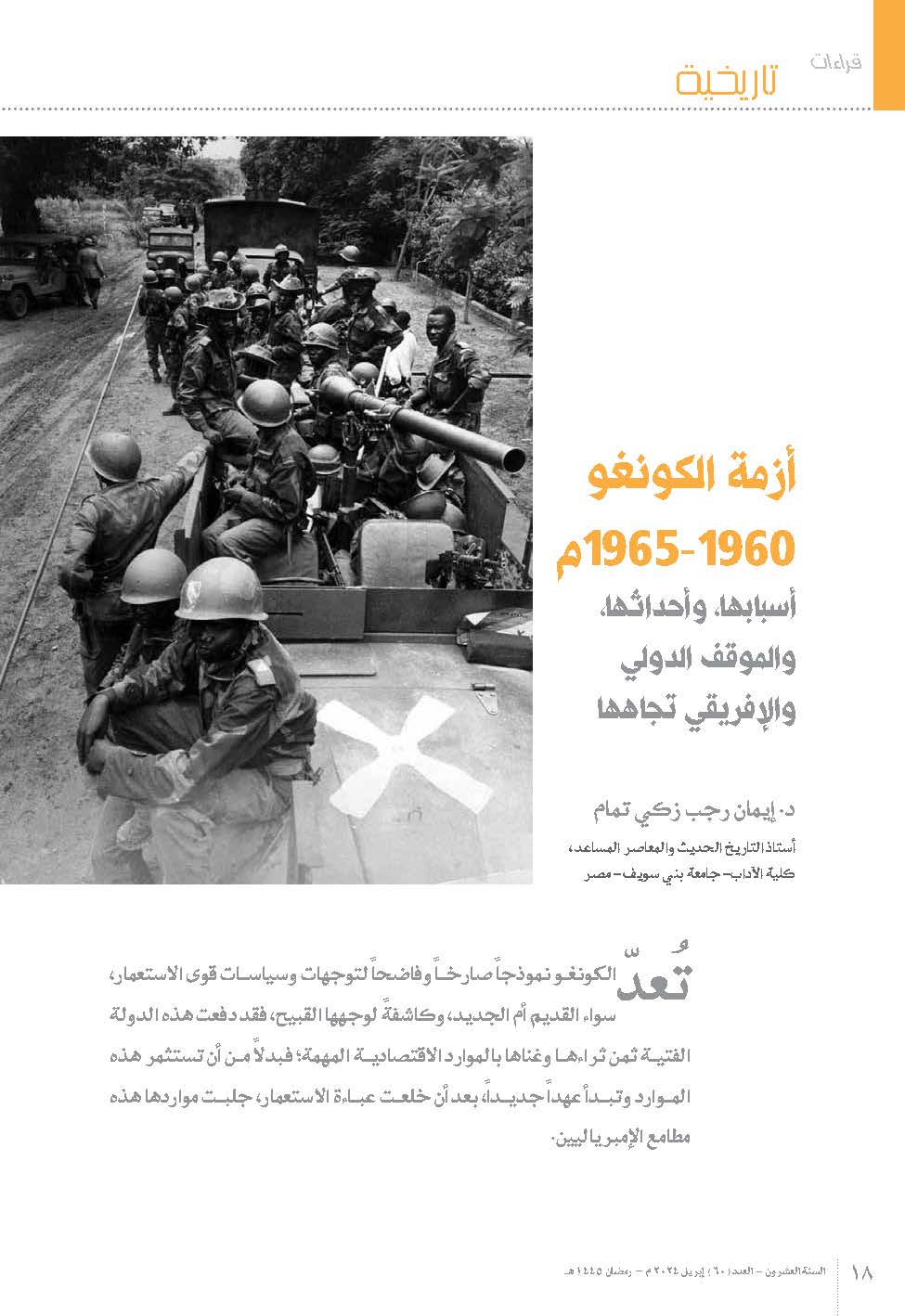Publisher: Qira’at Afriqiyah Magazine
Issue: 60, April 2024
ISSN: 2634-131X
Year : 20
Pages: 18-31
Author: Dr. Eman Ragab Zaki Tammam
Download pdf

Abstract:
Congo (currently the Democratic Republic of the Congo) is a revealing example of the tendencies of colonial powers in its old and new forms, and the policies of those powers that plundered the wealth of Africans and made them revolve in the orbit of dependence on them. This newly independent country paid the price for its wealth and enriched it with important economic resources that brought about the ambitions of the powers. Imperialism. Under Belgian rule, Congo was subjected to the worst organized plundering of any country in modern times. The Congo crisis is an example of the problems that African countries suffered after their independence. This crisis was the occurrence of some political unrest and conflict in the Congo that extended between 1960 and 1965. The crisis began immediately after independence, and ended with the arrival of Joseph Mobutu to power, and in the midst of that The Crisis A series of civil wars occurred, and the crisis was a proxy conflict within the events of the Cold War in which the warring Congolese factions received support from the United States and the Soviet Union. The victims of this crisis were many Africans who were killed during its events. In this article, we will explain Belgium’s responsibility towards the Congo crisis, as it did not want to leave this country without remaining in control of its capabilities and wealth, and thus created crises in the face of Lumumba’s nascent government. Western powers exploited the differences between Congolese leaders and ignited the crisis, and were responsible for the Congolese scene full of crises and conflict over power. The United States did not want to leave this heated conflict in the midst of its cold war with the Soviets without turning the tide of this conflict in its favor, at times in coordination with Belgium, and at other times planning alone, taking advantage of its influence and influence on the United Nations and its officials. In the midst of events, many African countries announced their support for the Congo in its crisis, and provided their assistance to the national government headed by Lumumba. They also declared their opposition to the secession of Katanga, and their strong condemnation of the assassination of Lumumba. This is because the Congo crisis was only really worrying the leaders of African national liberation, whose country’s future and capabilities were facing a real and very difficult test in the face of the old and new colonial forces’ assault on the newly independent African countries. This article will discuss the Congo crisis through several axes: Introductions to the crisis and its causes, then the opening of the fuse of war, the secession of the Katanga region and the aggravation of the crisis, the call for the United Nations to intervene, then research into the developments of the crisis until 1965, the assassination of Lumumba and the developments that followed it, the international position towards the crisis, and finally the African position towards it.
